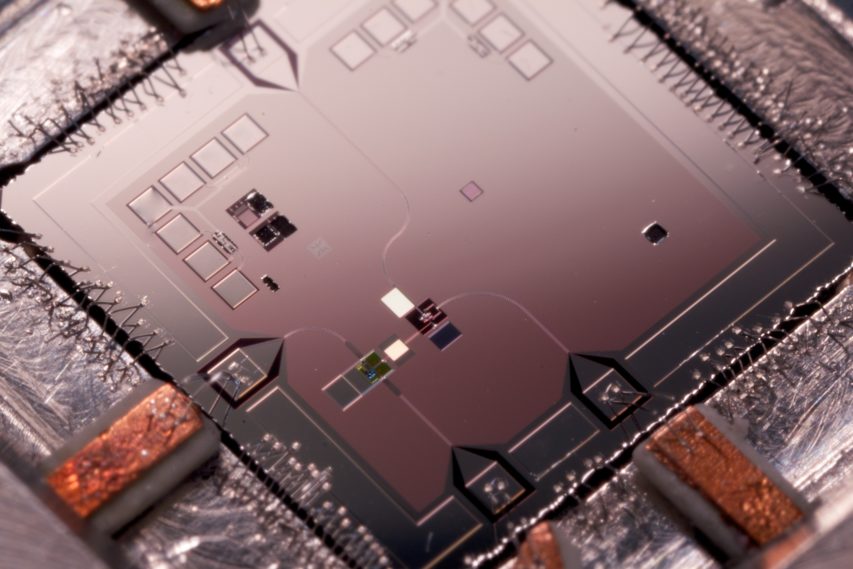A couple of weeks ago I went on a business trip to San Francisco and I had the great opportunity to visit Illumina, the worldwide leader company that provides products and services for mapping and analyzing the human genome. It was founded in 1998 and today it controls about 75% of the DNA sequencing and genotyping market in the world.
It was 10 o’clock in the morning and Shervin Kamkar, Illumina’s Commercial Business Head for the Understand Your Genome program, welcomed me at the main lobby. We had been exchanging e-mails and calls, however, this was the first time we met personally. We sat in the cafeteria and curious to better understand the company, I asked Shervin some essential questions: do you recommend sequencing my genome? What would be the cost of that service? And what could I expect from it?
Shervin took a sip of his coffee and then began to respond. On the one hand, he explained that Illumina offers an educational symposium with a service to sequence the entire genome of a person for only $2,900 and that they can do it in just several days, something that just 8 years ago would have cost hundreds of thousands and would have taken months to complete.
“If you are not afraid to learn more about yourself, you should go for it,” he said, and mentioned that through their clinical whole genome sequencing analysis, their CLIA, CAP lab could report on over 1,200 hereditary diseases as well as provide response to 16 different medications (pharmacogenomics). I told him that I had always thought of prevention as an investment in health, and to pay $2,900 dollars for knowing your entire genome is relatively accessible compared to the cost of a few years ago; but the reality is that this price is still unattainable for most of us these days.
Shervin explained that there exist other lower cost services such as direct to consumer (DTC) genotyping test, which focuses on screening you DNA for known single nucleotide changes for changes in your germline DNA; and thus obtain results on whether there are mutations in certain previously identified genes that might indicate the propensity to some diseases. However, these direct to consumer services don’t sequence your DNA, but scan your genome in specific locations looking only for these changes – akin to looking at only a few letters on each page of a book instead of giving you the whole book. Most of these services also report limited medical information and mostly report on ancestry and traits. All this can cost anywhere from $70 to $300 and are offered by companies such as Ancestry, 23andMe or Color Genomics.
The price difference between the company and its “competitors” was what intrigued me and thus led me to ask why; to respond more clearly, Shervin invited me to do a quick tour of their offices. We went up an elevator to the third floor, to reach a wide space of open cubicles overlooking the bay. Then we went down a flight of stairs to finally reach a lab full of DNA sequencing machines.
“As a life science tools and medical device company, Illumina’s core business is the manufacturing of equipment for sequencing the genome, therefore, most of our customer base is large research centers, university laboratories, hospitals and genetic testing companies. These sequencers cost anywhere from $50K to $10M depending on the throughput needs of your laboratory”, he said as he showed me the more affordable MiSeq machines, which do not exceed the size of a standard multifunctional printer.
“But Illumina continues to evolve,” continued Shervin. For example, in January 2016, Illumina invested $100 million in spinning out Grail, a company that is betting on early cancer detection through liquid biopsy screening. The method consists of sequencing a blood sample with the intent of quantifying circulating tumor DNA released by cancerous tumors and differentiating it from your healthy germline DNA. A simple blood like this used test to screen healthy people on a yearly basis for the emergence of cancer is essentially the holy grail of cancer detection. Oncologists widely believe that with early detection, outcomes will improve dramatically as many cancers are treatable in early stages with today’s available treatments.
Another example of the types of investments Illumina is making is Helix, a company that in the words of its CEO Robin Thurston aims to become the app store for DNA. Helix’s main idea is o build a market place for other companies who want to provide only key pieces of information about your DNA, but prefer not to invest in the sequencing technology. A customer can order a specific DNA test from one of Helix’s partners, Helix will send you a DNA saliva kit and will whole exome sequence your entire protein coding region of your DNA, but deliver DNA test results only for the genes that you were interested in. These tests can cost as low as a $50-$100’s but once you have been sequenced once, you can continue to buy other apps in Helix’s marketplace without submitting another saliva sample.
Finally, Shervin showed me Illumina Accelerator, a project of the company to accelerate startups in the field of applied genomics. I consider this a great effort to develop the industry and help new genomics companies form.
After this experience, I see Illumina as the IBM of genetics, a company that manufactures DNA sequencers and therefore retains certain control of the market. But on the other hand, I also see a potential Apple, an innovative company that aims to make DNA sequencing available to all to promote the development of solutions that improve the health of mankind. Illumina is certainly an investment to consider in the long run. A company that will be key to the health and life of all human beings.
Ricardo Celaya
Operating Partner at Break Off Capital
MBA Oxford University
rcelaya@breakoffcapital.com
@ricardocelaya
www.breakoffcapital.com



